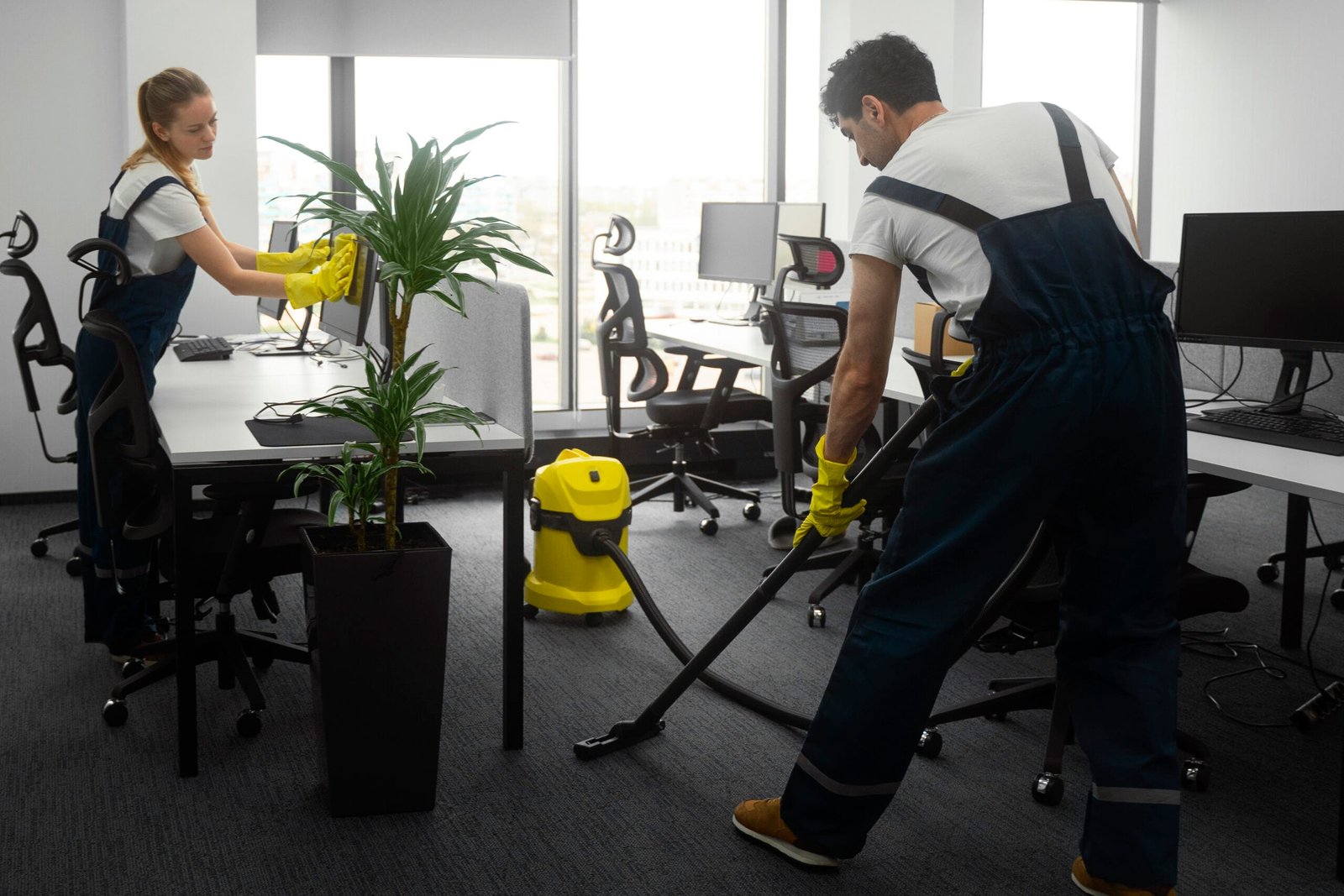
As the founder of OnCleaning, a London-based commercial cleaning company, I often ask, “Should we go for daily or weekly office cleaning?” The answer isn’t one-size-fits-all. It depends on your workspace, team habits, and operational needs. In this guide, I’ll break down the differences, benefits, and challenges of each cleaning frequency to help you make an informed decision for your business.
Daily vs Weekly: A Comparative Overview
| Aspect | Daily Cleaning | Weekly Cleaning |
| Frequency | Every working day | Once a week |
| Ideal For | High-traffic, client-facing businesses | Small teams, low-traffic offices |
| Cost | Higher due to frequency | More budget-friendly |
| Health Benefits | Maximizes hygiene, reduces illness | Basic hygiene maintenance |
| Employee Productivity | Enhances focus and morale | Moderate impact |
| Compliance | Meets stringent health guidelines | May require additional measures |
What’s the Difference Between Daily and Weekly Office Cleaning?
Daily Office Cleaning involves routine tasks performed every working day to maintain cleanliness and hygiene. Typical daily tasks include:
- Disinfecting high-touch surfaces (e.g., door handles, keyboards, phones)
- Emptying bins and replacing liners
- Vacuuming or mopping floors
- Cleaning restrooms and replenishing supplies
- Wiping down kitchen and breakroom areas
- Restocking consumables like soap, paper towels, and toilet paper
Weekly Office Cleaning focuses on deeper cleaning tasks that don't require daily attention. These tasks typically include:
- Deep carpet cleaning or vacuuming
- Detailed dusting of surfaces and equipment
- Cleaning interior windows and glass partitions
- Sanitizing less frequently used areas
- Polishing furniture and fixtures
While daily cleaning maintains a baseline of cleanliness, weekly cleaning addresses areas that accumulate dirt and grime over time.
How Do I Know Which Cleaning Frequency Is Right for My Office?
Several factors influence the ideal cleaning schedule for your office:
1. Foot Traffic
High-traffic offices, such as call centres or co-working spaces, benefit from daily cleaning to manage the constant influx of people. In contrast, offices with minimal daily visitors might find weekly cleaning sufficient.
2. Type of Business
Industries like healthcare or food services have strict hygiene standards, necessitating daily cleaning. Creative studios or consultancy firms might not require such frequent cleaning, but still benefit from regular maintenance.
3. Office Size and Layout
Larger offices with multiple rooms and facilities may need a combination of daily and weekly cleaning to ensure all areas are adequately maintained.
4. Health & Safety Compliance
Businesses must adhere to health and safety regulations, which may dictate specific cleaning frequencies, especially in sectors where cleanliness directly impacts safety.
What Are the Benefits of Daily Office Cleaning?
Health and Hygiene
Regular daily cleaning reduces the spread of germs and allergens. Implementing daily sanitation of high-touch areas can reduce absenteeism by up to 35%.
Employee Productivity and Morale
A clean workspace boosts employee morale and productivity. Employees working in clean environments are more focused and motivated.
Better Impressions on Clients and Visitors
First impressions matter. A consistently clean office reflects professionalism and attention to detail, instilling confidence in clients and visitors.
Compliance with Industry Standards
Regular cleaning ensures compliance with industry-specific cleanliness standards, reducing the risk of violations and associated penalties.
What Are the Advantages of Weekly Office Cleaning?
Cost-Effectiveness for Small Teams or Low-Traffic Spaces
For smaller teams or offices with minimal daily activity, weekly cleaning can be a cost-effective solution without compromising cleanliness.
Less Disruption to Daily Operations
Scheduling cleaning tasks weekly can minimize disruptions during peak working hours, allowing employees to focus without interruptions.
Suitable for Offices with In-House Tidying Habits
Offices where employees maintain their workspaces might only require professional cleaning services every week to handle more intensive tasks.
Common Challenges Businesses Face with Office Cleaning
Balancing Budget and Cleanliness Standards
Finding the right balance between maintaining a clean environment and managing cleaning costs can be challenging.
Inconsistency from Untrained or Irregular Cleaners
Inconsistent cleaning schedules or untrained staff can lead to subpar cleanliness, affecting employee health and company image.
Choosing the Wrong Schedule for Your Unique Business Needs
Selecting a cleaning frequency that doesn't align with your office's specific needs can result in either unnecessary expenses or inadequate cleanliness.
How Should You Create the Ideal Office Cleaning Schedule?
Blended Approach: Daily Essentials + Weekly Deep Cleans
Combining daily cleaning of high-traffic areas with weekly deep cleaning tasks ensures a consistently clean and hygienic workspace.
Involve Staff or Management in Feedback
Gathering feedback from employees can provide insights into areas that may require more frequent cleaning or adjustments to the current schedule.
Tips for Evaluating and Adjusting Over Time
- Regularly assess the effectiveness of your cleaning schedule.
- Be open to adjusting frequencies based on seasonal changes or shifts in office activity.
- Monitor employee feedback and health trends to identify potential issues.
Ready to Choose the Right Cleaning Schedule? Talk to OnCleaning Today
At OnCleaning, we understand that every office has unique cleaning needs. Our flexible cleaning plans cater to daily, weekly, or hybrid schedules, ensuring your workspace remains clean and compliant. With our trained staff and commitment to excellence, we provide reliable cleaning services tailored to your business.
Contact us today to discuss your office cleaning requirements and discover how we can help maintain a healthy and productive environment for your team.